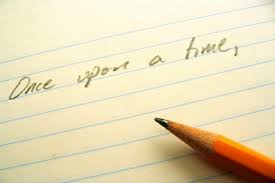
We’re doing a book giveaway over at Kathy Temean’s blog, Writing and Illustrating for Children. Come on over to read about the book and its journey. Book Giveaway: SOCCER TIME! by Terry Pierce


We’re doing a book giveaway over at Kathy Temean’s blog, Writing and Illustrating for Children. Come on over to read about the book and its journey. Book Giveaway: SOCCER TIME! by Terry Pierce
I’ve been doing a lot of critiques recently, and the most common mistake I see is overwriting or being too wordy. Whether the story is a picture book or a novel, a writer should always strive to use the best word choices in a succinct style that conveys the story’s plot, characters and setting. To this end, I’d like to share four great writing tips to help clean up one’s writing:
First, with a highlighter, mark every adjective and adverb on your manuscript (I use a highlighter because I mostly write shorter stories, like picture books). Then, go back and remove them by using a stronger noun or verb. E.g., if you’ve said, “Sarah climbed up the gigantic rock” replace those two words with “Sarah climbed the boulder” (or even better, “Sarah scaled the boulder.”). Doing this reduce wordiness and make for more interesting nouns and verbs.
Second, with Word’s Grammar and Spelling checker, find all passive sentences (you can set your Grammar checker to find “passive voice”). When you find them, revise those sentences to make them active. Often, these are sentences with “to be” verbs. These words (is, are, was, were) slow down the writing. For example, listen to the difference here:
Bill was hit by the ball. (note the use of “was”)
The ball hit Bill.
See how much more active and direct the second sentence sounds? Another way you can check for this problem is to do a Word “find” for any to-be verbs.
Third, use Word’s “Find” tool to locate any qualifiers (very, just, really, such, etc.). Revise the sentences to remove them. I know, sometimes it’s hard to remove them, and if it’s in someone’s dialogue that’s probably okay, but if you’re using these “empty calorie” words a lot, it weakens your writing. E.g., rather than say, “The sky was very, very blue that day” take out the use of “very” and write a stronger sentence, “A cobalt sky greeted my eyes as I stepped out of the cabin.”
Last, and this is especially true for longer manuscripts, do a Word Find for the word, “that.” It’s surprising how often writers use this word and it’s not necessary. How to fix it? Just read the sentence without “that” and see if it sounds better. You might be surprised to see how often you don’t need it!
Happy writing and revising!

You must be logged in to post a comment.